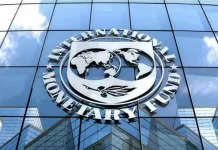
A darker mood awaits the largest economy in Africa as Oil descends to levels to not seen in more than two decades below $15.
Over the past few months, the story defining Oil’s steep depreciation revolved around the coronavirus chaos, fears over falling demand, slowing global growth and oversupply concerns.
With the grim outlook for Oil growing grimmer by the day amid demand destruction and slowing growth from the world’s largest energy consumer, Oil producing countries like Nigeria are under threat.
“The spectre of a recession will hang over the Nigerian economy for a long as crude oil remains the primary source of revenue.”
READ ALSO: IMF excludes Nigeria among 25 countries benefiting from debt relief
The statement above holds, especially when factoring in how Nigeria depends on crude sales for half of government revenues and 90% of foreign exchange earnings. According to the International Monetary Fund (IMF), Africa’s largest economy is forecast to shrink by 3.4% in 2020 with the recession lasting until 2021. It does not end here.
One of the country’s benchmark grades, Bonny Light, fell to about $12 last week which was below the cost of producing Oil in Nigeria while demand from Asia has dropped significantly amid the global lockdown.
Another challenge Nigeria faces may be where to store the excess capacity of Oil due the limited onshore storage space.
READ ALSO: Nigeria needs more fiscal support to fight Coronavirus, IMF tells Buhari
However, there is some light at the end of the tunnel as Nigeria plans to raise as much as $6.9 billion from global lenders to help counter the negative impacts of the coronavirus to the economy. Such a move may create fiscal space to enable effective methods in supporting the economy and health challenges presented by the coronavirus.
Investors will direct their attention towards the pending inflation figures for March which may shape monetary policy speculation this quarter. The annual inflation rate in Nigeria rose for the sixth straight month to 12.2% in February and is forecast to jump 12.5% last month.
Signs of rising inflationary pressures are likely to complicate the Central Bank of Nigeria’s efforts to ease monetary anytime soon. The Central Bank of Nigeria Manufacturing PMI will be published on Friday 24 April with the index projected to slip to 49.2 in April which signals a contraction.
by Lukman Otunuga, Senior Research Analyst at FXTM





